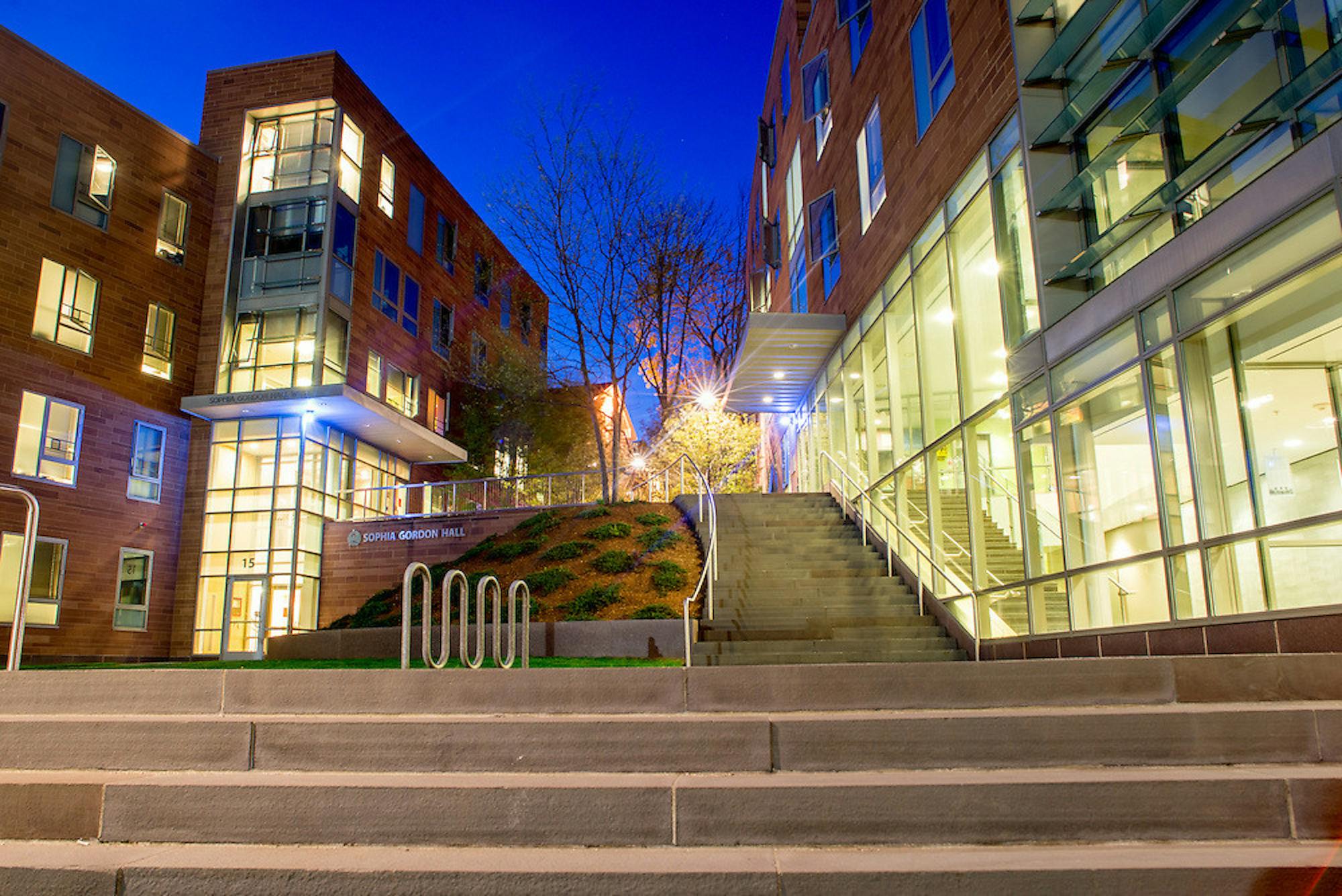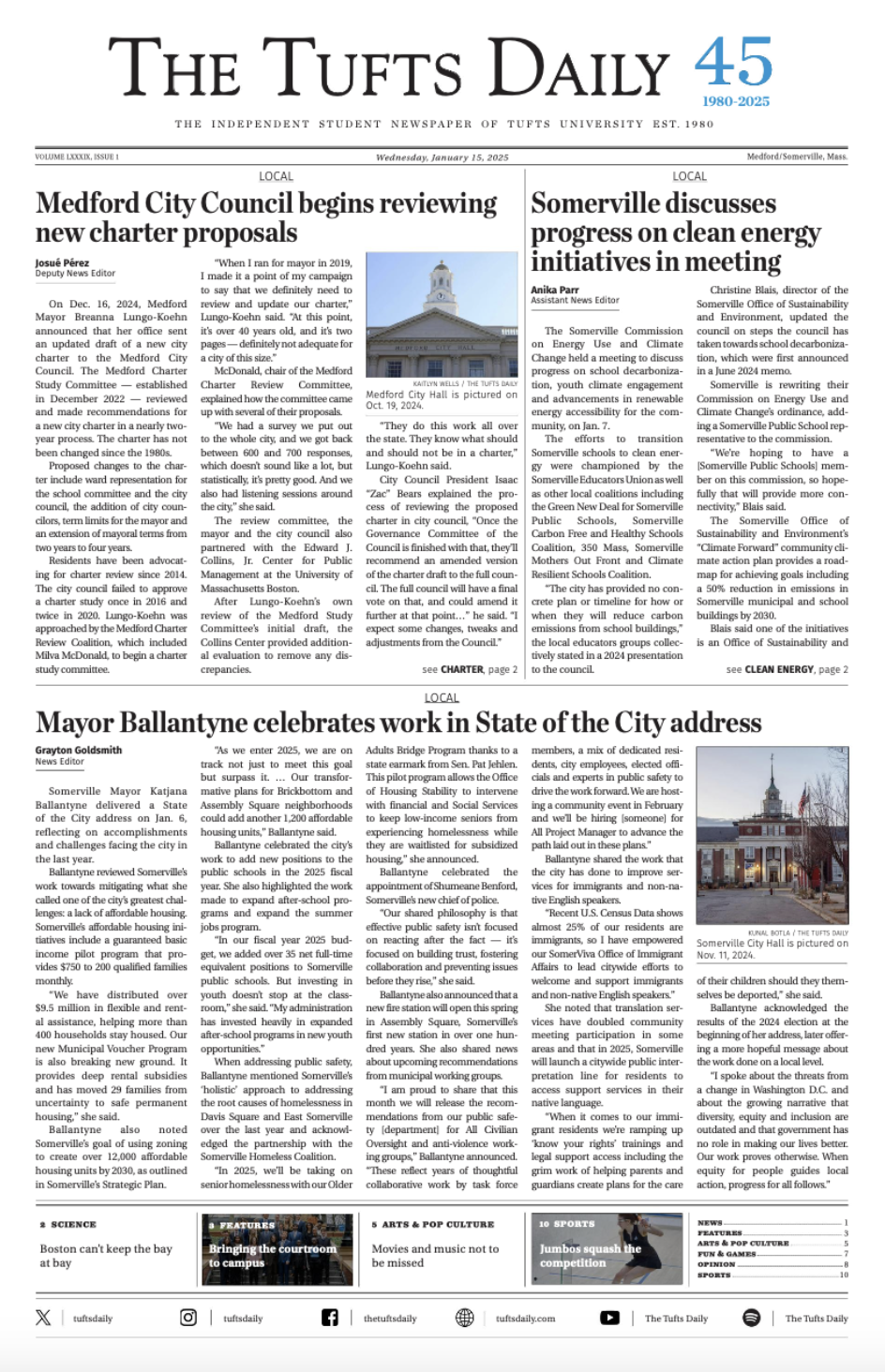Verna DeLauer, an associate professor specializing in natural resource management at Franklin Pierce University, led a talk titled “Being Seen, Feeling Heard: Designing Intimate-Scaled Spaces on Urban College Campuses” as part of last week’sDepartment of Urban and Environmental Policy and Planning Colloquium series in the Sophia Gordon multipurpose room.
DeLauer shared her conclusions and recommendations for redesigning spaces at college campuses by referencing her recent experience living and working in Findhorn, a villagefocused on sustainable livinglocated about 30 miles outside Inverness in northern Scotland.
DeLauer explained that she visited Findhorn for about one month to better understand the lifestyle, approach and spaces inhabited by younger people who lived there, the age demographic whom her research focuses upon.
Findhorn was an ideal setting to observe how young people interact with their surroundings because of the culture of intentionality supported by the eco-village’s ethos, according to DeLauer.
“Over and over again, I heard from the residents how the place made them feel,” DeLauer said. “What I found was that what was important there were what I’m calling ‘intimate-scaled spaces’ and ‘intimate-scaled practices.’”
DeLauer added that the ability to emotionally attach to a space was the most important element of design for many of the young people she interviewed, both at Franklin Pierce and Findhorn. She listed examples such as a meditative space for about 25 people at Findhorn and a series of outdoor hammocks on Franklin Pierce’s campus.
DeLauer emphasized the ways in which she believes students’ college experiences could be improved by implementing changes motivated by these principles.
“More places like this … improve connection on college campuses,” DeLauer said. “So that [students] build personal strength, so they increase self-reliance, so they improve mental health.”
DeLauer described how Findhorn residents went about achieving this intimacy with spaces, which she advocated for implementing on college campuses.
“What is important for them is making public spaces personal … and also safe and equitable as much as possible,” DeLauer said.
DeLauer drew parallels between college campus design and Findhorn, emphasizing the downfalls in what she viewed as the similarly intentional and all-encompassing nature of a college community.
“I think that regardless of what kind of school you’re at, there’s a potential for isolation,” DeLauer said. “A lot of changes could be made to increase connections.”
DeLauer listed examples of some of the spaces that she said reflect these principles.
“Things like gardens, benches, cushions, beanbags, pillows, blankets, pathways, meetup spaces, lounge chairs … places that only students know about,” DeLauer said. “Places that only the Tufts community, for instance, know about.
DeLauer added that none of the intimate-scaled spaces she referenced were named after “founders,” instead bearing names which reflected users’ connection with the space.
In response to an audience member’s question, DeLauer reflected that the relationship between intimate-scaled spaces and the culture needed to establish them is unclear.
“My initial reaction is that the culture comes first, but I’m not an urban planner,” DeLauer said. “Or it could be like, ‘Build it and they will come’ … I don’t know.”
DeLauer advocates for campus spaces, practices promoting emotional connections

Sophia Gordon Hall is pictured on May 7, 2014.





